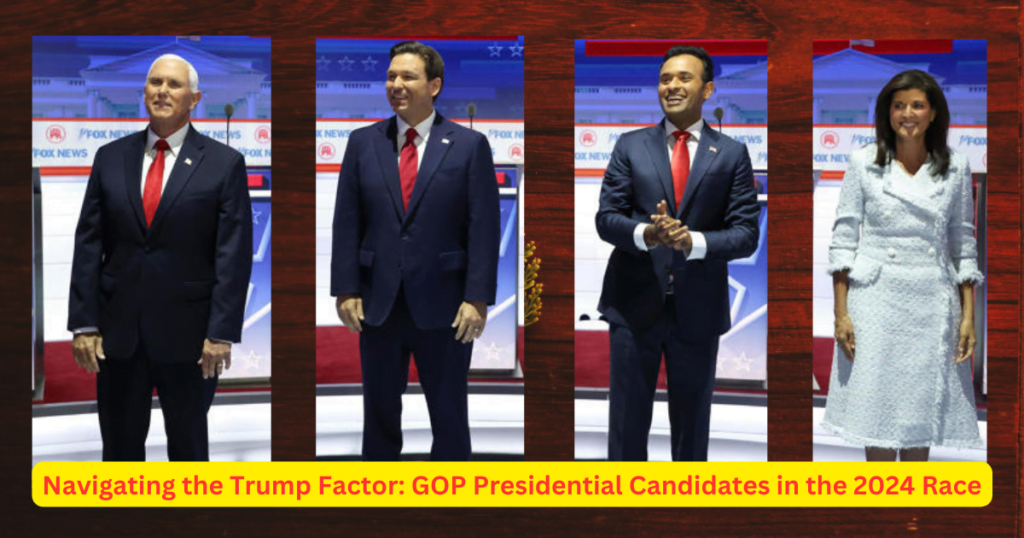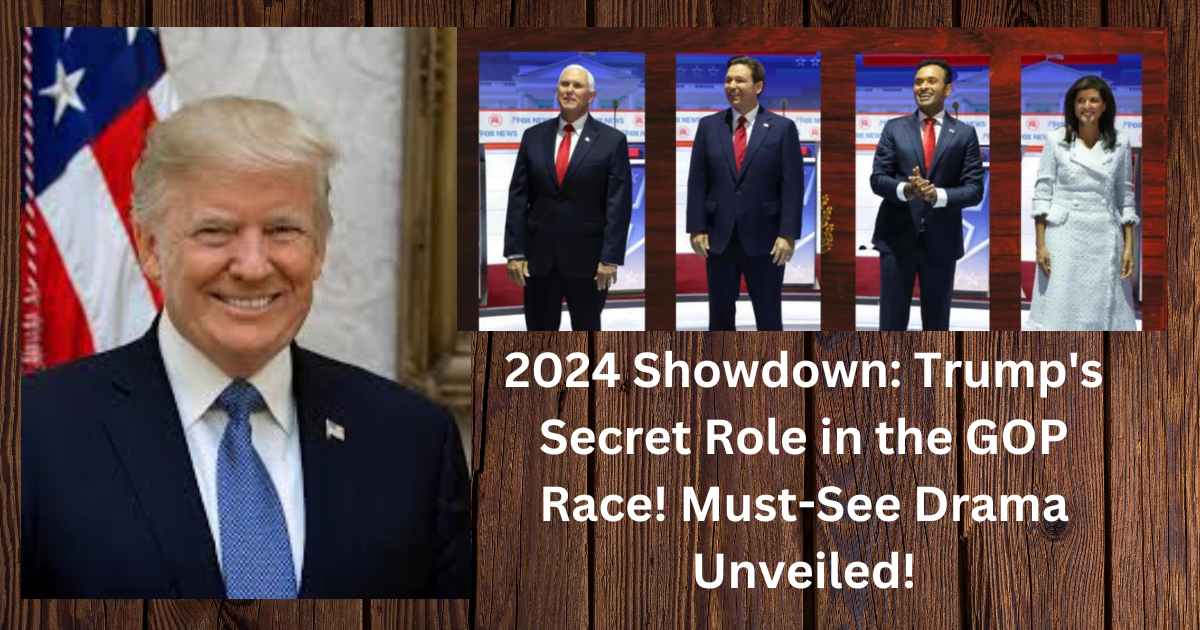As we look ahead to the 2024 presidential race, Republican candidates are facing a tricky task – dealing with the lasting impact of Trump. With the former president still having a big influence on the GOP, those aiming for the presidency need to be careful about where they stand in the party. Some candidates want to stick with Trump’s ideas, connecting with his supporters and emphasizing shared values. Others are trying to be more independent, hoping to change the party and appeal to a wider range of voters. In this changing political scene, GOP contenders are doing a careful dance, trying to use the power of Trump’s influence without getting caught up in any controversies. The 2024 race is a big challenge for these Republican hopefuls as they try to balance tradition and change in the time after Trump.

Introduction
Navigating the Trump Factor: GOP Presidential Candidates in the 2024 Race. The second GOP debate is fast approaching, and Republican presidential candidates find themselves facing a delicate dance when it comes to addressing former President Donald Trump. While it’s a tradition in presidential races to challenge the frontrunner, most GOP candidates have been cautious about directly criticizing Trump. This reluctance stems from their desire to avoid alienating the many Republican voters who continue to support Trump. In this article, we’ll explore the strategies Republican candidates might employ during the debate, the dynamics at play, and the challenges they face in the 2024 race.
The Low-Key Strategy
Republican candidates have largely chosen a low-key approach to criticizing Trump. Rather than directly attacking him, they’ve opted to draw contrasts on various issues. For instance, Florida Governor Ron DeSantis has critiqued Trump’s record on the border wall and federal spending. This approach aims to maintain a connection with Trump’s voter base while emphasizing policy differences. However, this strategy is not without its challenges, as it requires a delicate balance between differentiation and unity within the party.
The “Maybe Trump” Voters
As the 2024 race approaches, Republican voters can be categorized into three groups: “Never Trump,” “Always Trump,” and “Maybe Trump.” The “Maybe Trump” voters represent the largest share at 50-55% of the GOP vote. These voters are open to considering alternative candidates but are also wary of being mocked for their past support of Trump. Consequently, challengers must tread carefully when dealing with the Trump factor, finding a balance between separation and respect.
The Challenge of Alienation
Many Republican candidates are concerned that attacking Trump too directly could lead to alienation from his loyal voter base. For some, Trump’s counterattacks and personal attacks are significant deterrents. This fear of being “canceled” out of the party altogether adds to the cautious approach taken by many GOP candidates. They understand that any overt criticism of Trump might result in a backlash from his staunch supporters, which could make their path to securing the GOP nomination even more challenging.
Changing Dynamics
While the delicate dance continues, some Republicans argue that to catch up with Trump in the polls, candidates will eventually need to confront him directly. The Iowa caucuses, the first state-level election of the GOP primary, are rapidly approaching on January 15, which might prompt more confrontational interactions during debates. As the candidates face increasing pressure to stand out in a crowded field, the dynamics of their engagement with Trump could evolve.
Strategies for the Debate
- Sideways Critique: Most GOP candidates are expected to continue critiquing Trump indirectly, framing him as representative of the party’s past. This strategy avoids direct confrontation while highlighting differences in policy and approach. They may argue that Trump represents an older era of Republican politics, subtly suggesting that the party needs a fresh perspective to succeed in the future.
- Policy-Based Contrasts: Candidates can continue to draw distinctions with Trump on various policy issues, such as the border wall, federal spending, and abortion. This allows them to appeal to specific voter segments within the GOP. For example, candidates like DeSantis may emphasize their differences with Trump on issues that matter to conservative voters.
- Focus on Electability: Some candidates may choose to emphasize Trump’s electability problem in a general election. They argue that a significant portion of Americans does not want a rematch between Trump and President Joe Biden, making it challenging to secure victory in a general election. This approach appeals to the “Maybe Trump” voters who are concerned about the GOP’s chances in a broader electoral context.
- Balancing Act: The key challenge for GOP candidates lies in defining differences with Trump without alienating his supporters. Messages should revolve around their own strengths and vision rather than engaging in direct attacks. They must project themselves as leaders who can bring the party together and appeal to a broad spectrum of voters, including those who may have reservations about Trump’s leadership style.
Conclusion
As the GOP candidates prepare for the second debate, they face the complex task of navigating the Trump factor. Balancing the need to appeal to Trump’s voter base while distinguishing themselves is a delicate dance that requires careful strategy. With the Iowa caucuses approaching, the dynamics of the race may evolve, potentially leading to more confrontational interactions with Trump. In the end, the ability to connect with “Maybe Trump” voters while avoiding alienation remains a crucial factor in the quest for the GOP presidential nomination in 2024.
In the ever-evolving landscape of American politics, the role of former President Donald Trump continues to cast a long shadow over the Republican Party. As the 2024 presidential race inches closer, the Republican candidates must grapple with a complex challenge: how to address Trump’s legacy and his continued influence on the party without alienating the diverse base of GOP voters.
